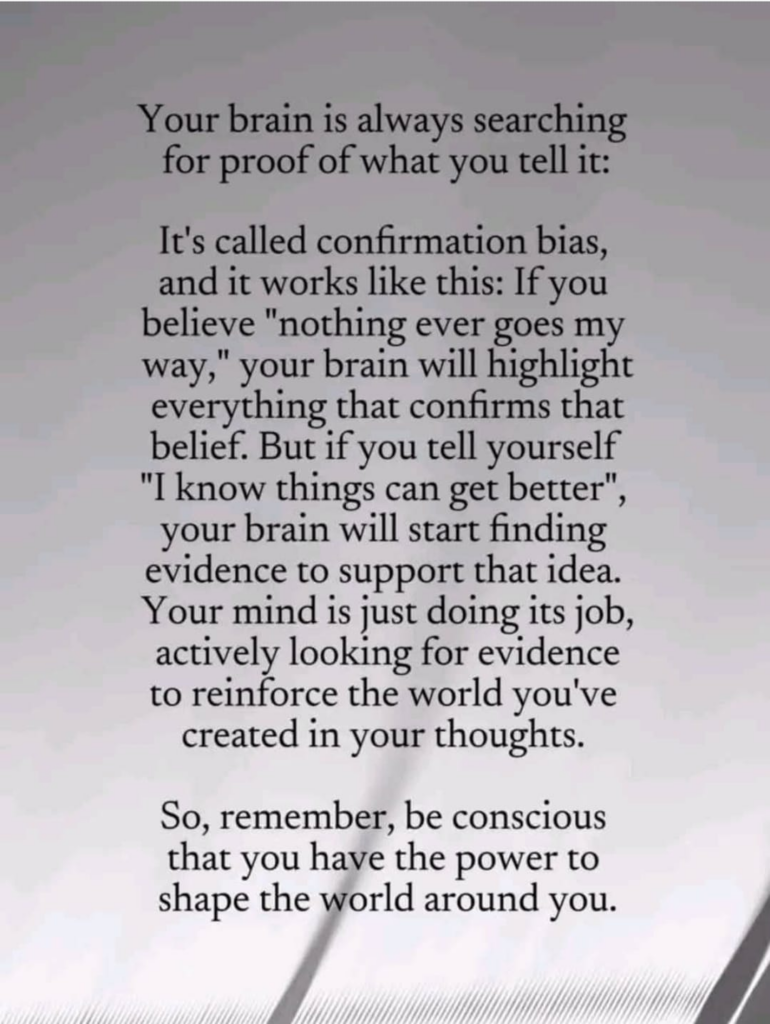The Paradox of Seeking
In our search for answers—whether through Google, social media, or the vastness of the world—we uncover a profound paradox: what we seek shapes what we find. The mind acts like a magnet, drawing in reflections of its focus. If we seek negativity, we’ll find evidence to justify it. If we crave validation, the world will show us mirrors to our worth—or lack thereof. This is the paradox of seeking: the world doesn’t just reveal itself to us; it reflects the intentions of our search.
The irony is, the answers we chase are often rooted within us. The more frantically we look outward, the farther we drift from clarity. Peace, joy, and understanding do not come from the search itself but from the awareness of why we are seeking. The real question isn’t “What am I looking for?” but rather, “What is my mind creating in this search?”
Only when we realize this can we begin to shift our searches—not toward what we want to see, but toward truth and meaning that transcend the surface noise.
Examples of Seeking Conspiracy Theories vs. Seeking Truth
- The Moon Landing
- Seeking a Conspiracy: If you approach the moon landing believing it was a hoax, your search will lead you to websites, forums, and videos claiming staged footage, shadows that don’t align, or claims NASA faked it to win the space race.
- Seeking Truth: A search for credible sources provides scientific explanations, testimonies from astronauts, and evidence such as moon rock analysis, all pointing to the landing being real.
- Vaccines and Microchips
- Seeking a Conspiracy: Search “vaccines microchips” and you’ll uncover narratives claiming government tracking or population control agendas, reinforced by anecdotal posts and skewed interpretations of patents or studies.
- Seeking Truth: Searching scientifically validated studies or expert analyses highlights the overwhelming evidence of vaccine safety and efficacy, debunking myths about microchips or nefarious motives.
- Flat Earth
- Seeking a Conspiracy: Search “proof the Earth is flat,” and you’ll encounter groups that interpret flight paths, optical illusions, and misapplied physics as proof of a flat Earth.
- Seeking Truth: A search rooted in curiosity about Earth’s shape leads to centuries of evidence, from ancient astronomy to modern satellite imagery, clearly demonstrating Earth’s spherical nature.
- 5G and Health Risks
- Seeking a Conspiracy: Searching “5G health dangers” brings you to claims of mind control, cancer risks, and unverified “expert” opinions amplified by fear-mongering.
- Seeking Truth: Research through reputable health organizations or peer-reviewed studies reveals no scientific evidence linking 5G to harmful health effects at current exposure levels.
- Hidden Elites Controlling the World
- Seeking a Conspiracy: Searching “elites controlling the world” leads to narratives about secret societies, shadow governments, and global manipulation, often rooted in unverifiable anecdotes or fabricated evidence.
- Seeking Truth: Investigating systemic issues like income inequality, lobbying, and geopolitics provides tangible insights into how power dynamics and wealth influence the world, without veering into baseless theories.
The Core Lesson:
What we search for online or in life will lead us to evidence that confirms our bias. The algorithms of search engines and social media often amplify this effect, reinforcing our beliefs instead of challenging them. To seek truth, we must adopt a mindset of curiosity and skepticism, cross-referencing credible sources and questioning our own biases, rather than chasing narratives that align only with what we want to find.

